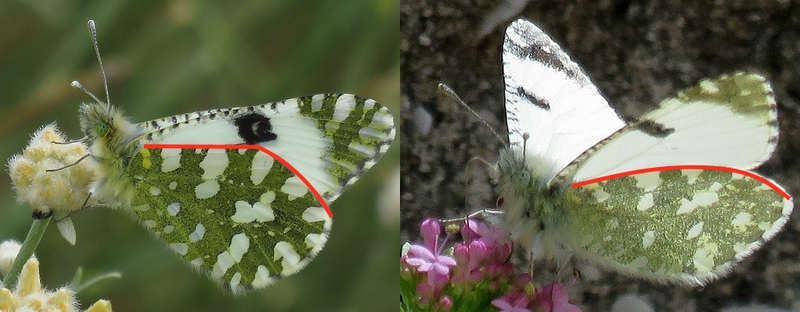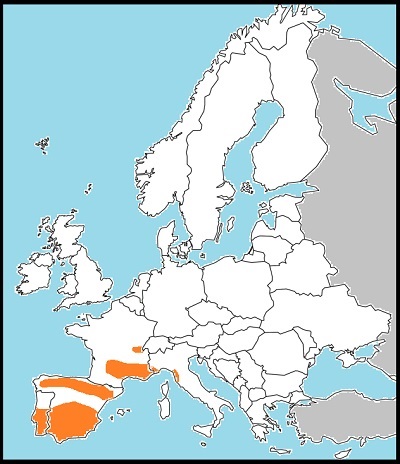Euchloe tagis
Refresh page if pictures don't load fully:

Gibraltar, April 2023 (ssp. gibraltariensis)

Antequera, Spain, April 2025 (ssp. granatae)
Quite
widespread in Spain, Portugal, the South of France and North Italy,
this is nevertheless a local species and less commonly encountered than
western dappled whites and green-striped whites. In fact, I didn't see (or rather,
confirm) one until April 2023, when I found three during a rushed trip
to Gibraltar. The first two didn't stop for a photo but the third did,
very briefly, and I was able to get the single shot above. There was a
strong wind blowing from the east that day and it is possible they
breed mostly on the sparse, eastern slopes of the Rock and that a few
got blown over. In any case, I haven't found them there on previous
trips. In 2025 I saw more, some near Baza (confirmed by shots taken in
flight) and some near Antequera, in Spain. I am coming to the
conclusion that this species settles very rarely in comparison to its
congeners.
In flight, Portuguese dappled whites are very similar to other dappled whites. On average, they are smaller than crameri/ausonia, but all these butterflies are very variable and size cannot be used as a reliable guide. The underside has largely the same markings as ausonia and crameri, although they are typically more broken up and smaller (variable by subspecies) and set in a more uniformly grey-green ground, with no obvious yellow. The costal spot on the forewing is rather linear and lacks a white centre, often found in the other two species. Most obviously, however, the costal margin of the hindwing is smoothly curved rather than apruptly angled:

Western dappled white on left; Portuguese dappled white on right
In flight, Portuguese dappled whites are very similar to other dappled whites. On average, they are smaller than crameri/ausonia, but all these butterflies are very variable and size cannot be used as a reliable guide. The underside has largely the same markings as ausonia and crameri, although they are typically more broken up and smaller (variable by subspecies) and set in a more uniformly grey-green ground, with no obvious yellow. The costal spot on the forewing is rather linear and lacks a white centre, often found in the other two species. Most obviously, however, the costal margin of the hindwing is smoothly curved rather than apruptly angled:

Western dappled white on left; Portuguese dappled white on right
Portuguese dappled whites feed on various species of Iberis
- candytuft - and are found on hot, sparsely vegetated, rocky,
calcareous slopes. There is a single brood each year, said to be from
late March to May, though given the tendency of southern species to fly
earlier in recent years, I suspect they can be found in Spain at least
before late March.
Distribution
